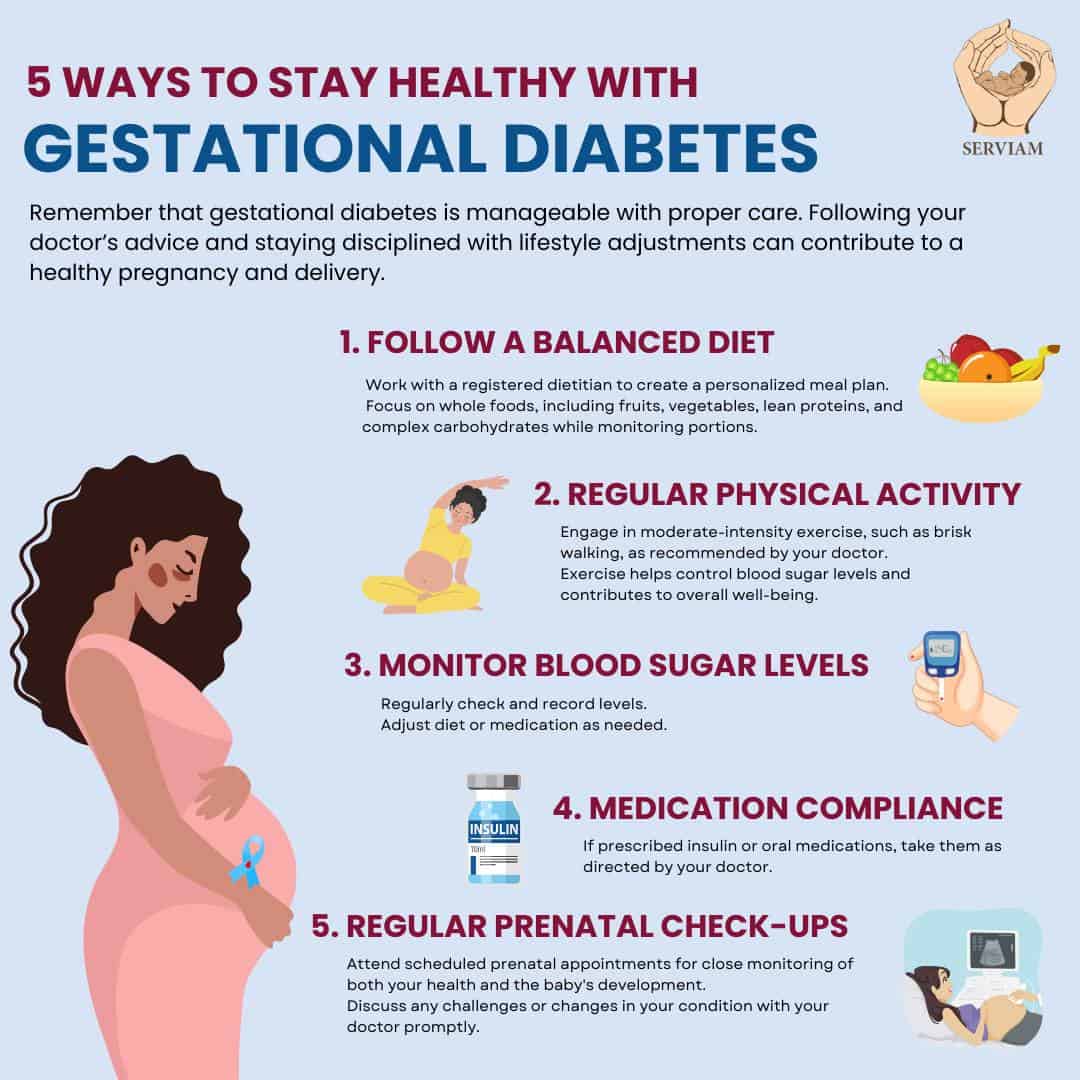National Diabetes Month: Gestational Diabetes Prevention! Learn more with serviam
November marks National Diabetes month. Each year during this time, Serviam embarks on bringing attention to diabetes to the people in Trinidad and Tobago. Keeping with this year’s theme of taking action to prevent diabetes health problems, this post will highlight gestational diabetes and preventative measures.
What is Gestational Diabetes?
This is a type of diabetes that can develop during pregnancy in women who don’t already have diabetes and usually disappears after giving birth. Insulin is an essential hormone that helps turn food into energy and controls your blood sugar levels. Gestational diabetes occurs when a woman’s body is unable to make enough insulin during their pregnancy.
Risk Factors:
• Being overweight or obese.
• Not being physically active.
• Having had gestational diabetes during a previous pregnancy.
• Existing health issues – such as polycystic ovary syndrome and pre-diabetes.
• Genetics – having an immediate family member with diabetes.
• Having previously delivered a baby weighing more than 9 pounds (4 kilograms).
Preventative Measures
According to a study conducted in Trinidad and Tobago, data revealed that 11.1% of women had diabetes in pregnancy. While more data is needed to determine the true prevalence of gestational diabetes in Trinidad, it is very important to implement preventative measures as this can affect your pregnancy and your baby’s health. Some preventative methods include:
1. Maintaining healthy body weight – If you are overweight, studies show that losing 5-7% of your body weight can help reduce the risk of gestational diabetes. It is important to discuss with your obstetrician what a healthy wight is for you during your pregnancy.
2. Get regular physical activity – This can help keep your blood sugar levels healthy. Your OB/GYN can tell you how much physical activity is right for you depending on your overall health.
3. Screening – This can be done via the Oral Glucose Tolerance Test (OGTT) which measures blood glucose levels to diagnose gestational diabetes. Early detection and screening can significantly reduce fetal health risks.
4. Diet – The glycaemic index (GI) is a rating system for foods containing carbohydrates. It shows how quickly each food eaten on its own affects your blood sugar (glucose) level. Low or medium GI foods are better for you because they raise your glucose levels more slowly. These may include: some fruit and vegetables, pasta and rice.
Resources:
You can find more information on gestational diabetes using these resources:
https://www.hopkinsmedicine.org/health/conditions-and-diseases/diabetes/gestational-diabetes
Contact Serviam to make an appointment to visit our clinic in San Fernando Trinidad for services from our team specializing in: OBGYN, Paediatrics, General Surgery, Urology, Dietetics, Medico-Legal Services and more.


